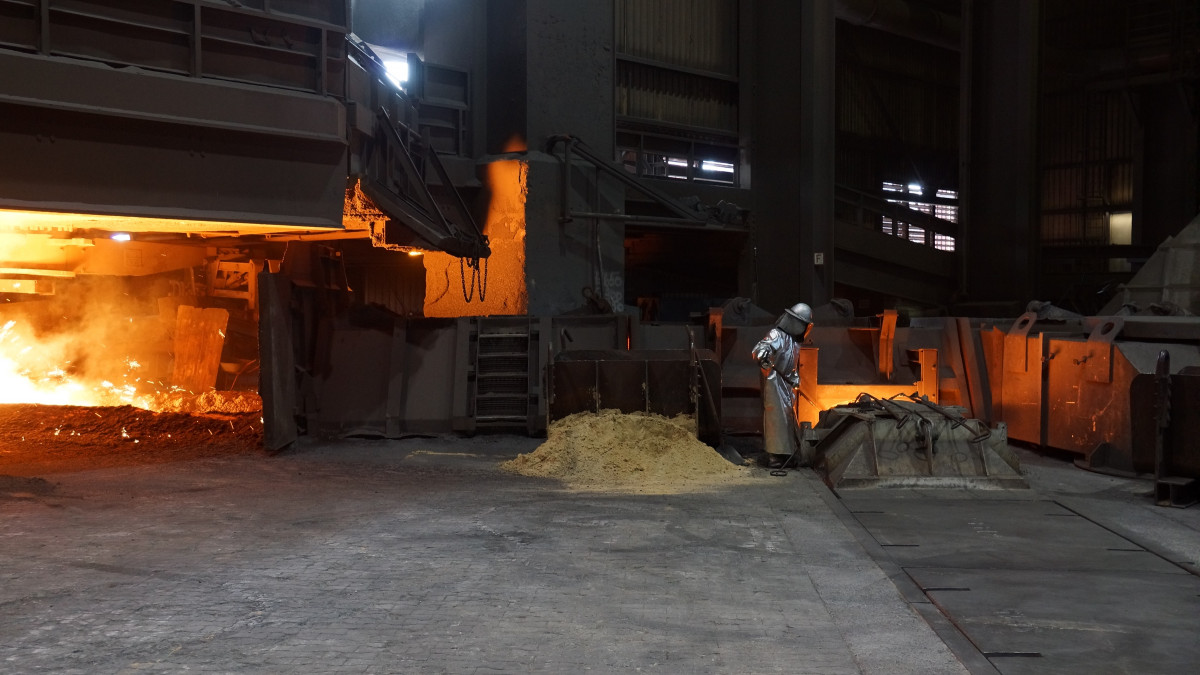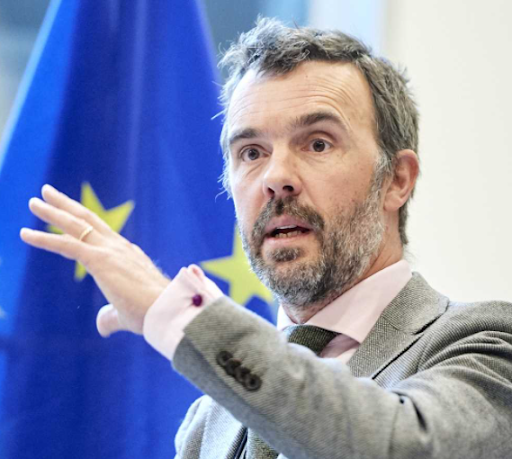Carbon border tax: Will Europe build trade walls to save the climate?
Read Clean Energy Wire's factsheet on EU plans to introduce a carbon border tax here.
The European Union aims to become climate-neutral by 2050 and, to this end, introduces ever stricter climate policies. A rising price for carbon emissions is an incentive for companies to produce in a more climate-friendly way, but could lead to a competitive disadvantage and carbon leakage, if the EU’s trading partners are not pricing carbon in a similar way.
Therefore, as part of the European Green Deal, the European Commission led by Ursula von der Leyen wants to introduce a carbon border adjustment mechanism (CBAM). This would mean putting a CO₂ price on imported goods depending on the greenhouse gas emissions produced along their value chain and on possible carbon prices paid already. The carbon adjustment price would reflect the carbon cost if the product had been made domestically. The Commission conducted a public consultation until the end of October and plans to present a proposal for selected sectors by 2021.
The idea is to create a level playing field for domestic and foreign businesses, especially for energy-intensive industries such as steel and cement, aluminium and fertiliser production and chemicals in general.
The new instrument could be a climate policy panacea, protecting the bloc’s industry, averting carbon leakage, providing an incentive for other countries to step up climate action and – last but certainly not least – revenue estimates range from 5 to 14 billion euros per year, depending on the scope and design of the new instrument.
However, a carbon border tax bears the potential to trigger trade conflicts, or – should the EU shy away from implementing a strong new instrument – be more or less ineffective.
Plans by the EU are getting a lot of attention in countries worldwide, with the risk of worsening relations with key trade partners, such as the US. However, in the medium term, such a measure could affect any country that aims to sell its products in the European Union. A carbon border tax could pose a special challenge to developing countries which might have problems coming up with the necessary funds to transform their production in a climate-friendly way on time.
To alleviate worries, Commission president von der Leyen has said the union would design the mechanism with stakeholders in Europe and beyond and ensure that it complies with World Trade Organisation (WTO) rules.
Key questions - as the European Commission has yet to publish its proposal - are:
- How will the mechanism be designed?
- Which industries are affected?
- Which problems could arise and how will they be addressed?
- When will it be introduced?
- Are there other options than a carbon border mechanism to deal with carbon leakage and safeguard competitiveness?
- What does industry think?
- How will third countries react?
We will address these issues and many others during the web event organised by Clean Energy Wire - CLEW in cooperation with Ecologic Institute. It is for journalists only. The event is part of a series about key issues in European energy and climate policy. Find out more about these events and CLEW's Europe plans here.
Agenda
| 16.00 - 16.05 | Welcome and introduction by moderator Kerstine Appunn, staff correspondent, CLEW |
| 16.05 - 16.20 | A European carbon border tax - the basics by Michael Mehling, MIT |
| 16.20 - 16.30 |
Q&A |
| 16.30 - 16.40 |
European Commission plans to introduce a CBAM (off the record) |
| 16.40 - 16.55 |
Q&A |
| 16.55 - 17.05 | A carbon border tax - what industry thinks by Cédric de Meeûs, LafargeHolcim |
| 17.05 - 17.15 | Q&A |
| 17.15 - 17.25 |
A view from India on the EU carbon border tax |
| 17.25 - 17.30 | Conclusions and outlook |
Speakers
David Boublil is the deputy head of the unit in charge of indirect taxes other than VAT in DG Taxation and Customs Union of the European Commission. He has been working on taxation and European affairs in several positions for the last 25 years including 18 in the Commission. He is now in charge of the Carbon Border Adjustment Mechanism Project, working in close cooperation with DG CLIMA and DG TRADE.
Cédric de Meeûs is Head of Public Affairs & Government Relations at LafargeHolcim. He is responsible for developing and driving a proactive global advocacy strategy on policy and regulatory issues that impact assets, activities and markets. Particular focus is given to climate change, circular economy, sustainable construction, waste management and industrial competitiveness.
Michael Mehling is Deputy Director of the Center for Energy and Environmental Policy Research (CEEPR) at the Massachusetts Institute of Technology (MIT), a research scientist with the MIT Energy Initiative (MITei), and a professor of practice at the University of Strathclyde’s law school. He brings over a decade of experience working on energy and environmental policy with government agencies, private companies and civil society organizations in North America, Europe, and the developing world. His recent work has focused on carbon pricing and other policies to address environmental impacts of the energy system.
FREQUENTLY ASKED QUESTIONS
Please click on the red "Sign up"-Button and fill in the necessary information. Remember to confirm your sign up via the automatic email you receive from us (it could land in your spam folder).
Most of the web event will be on the record. However, David Boublil from the European Commission will speak off record. He can be quoted as an "EU official".
No, we will not record the web-event.
The web-event language is English.
Sound quality is greatly improved by using headsets with
microphone. It is recommended that all active participants equip
themselves accordingly (smartphone headsets are sufficient).





